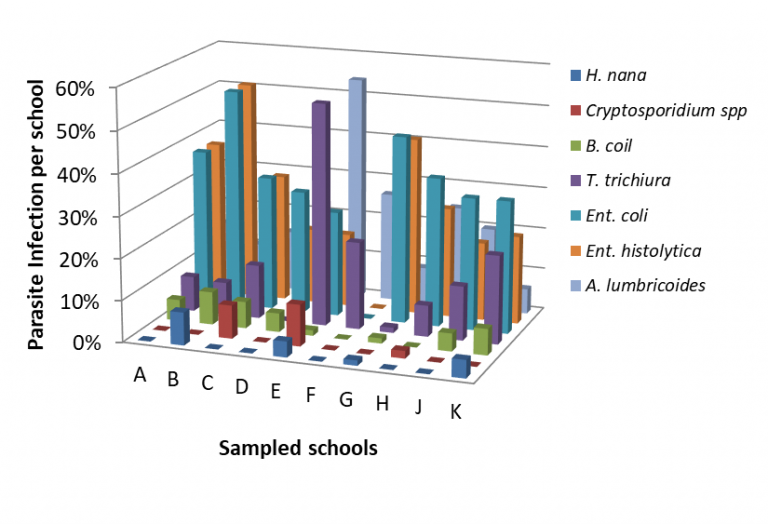We congratulate Mr Nduhiu Johnson Gitahi to the degree Doctor of Philosophy achieved for his thesis work: Isolation, serotyping & molecular characterization of enteric pathogens for validation of Peepoo sanitization along handling chain at Kibera, Nairobi Kenya.

The study evaluated Peepoo sanitation solution, a single use personal toilet for human excreta sanitization and reuse as safe fertilizer. The Peepoo is provided as school sanitation in urban slum Kibera solution by IAS and eleven schools in Kibera were involved to determine disease prevalence. A high prevalence was detected for parasites Entamoeba histolytica (28%), Ascaris lumbricoides (20%) and Trichuris trichura (13%) whereas prevalence of Cryptosporidium spp. was low (2.4%). For Campylobacter spp. and pathogenic Escherichia coli, prevalence were 18.3% and 7% respectively. However, a large proportion of the bacteria were found to be resistant to 1st and 2nd generation antibiotics at different levels. Viral infection (Rotavirus and Adenovirus) had low prevalence and was not identified as a health issue during the study period.
Using Peepoo as a mean to treat the excreta from infected school children showed that bacteria (pathogens and indicators) was inactivated in the Peepoo at the first sampling after 2 weeks whereas the more persistent Ascaris eggs decreased gradually in viability with no viable eggs found at week 8, corresponding to a 4 log10 inactivation. The study conclude the major sanitising effect being from the added urea since inactivation in controls were significantly slower or not occurring during the study period. A pot experiment showed that when using untreated human excreta as fertiliser there is a risk of uptake and internalisation of bacterial pathogens into the plants cultivated. The high disease prevalence in combination with survival in crop cultivation systems stresses the need for sanitising treatment is human excreta is used as fertiliser. The results from this study demonstrated the ability of Peepoo to effectively inactivate pathogens found in human excreta when stored for 8 weeks at ambient temperature. This significantly reduced the risk of pathogens internalization by coriander grown in soil fertilized with human excreta. The peepoo bag should therefore be deliberately promoted as a method of human waste management in informal settlements and as alternative source of organic fertilizer. Mass deworming of children is recommended after every three months in such informal settlements.
The PhD project hasbeen conducted as part of the Peepoo– a leap frog sanitation solution funded by Swedish research Council but was also partly funded by Grand Challenges Canada. The PhD study was jointly supervised by Prof. Michael M. Gicheru, Kenyatta University and co-supervisors Dr. Annika Nordin, SLU, and Dr. Peter B. Gathura, University of Nairobi.
